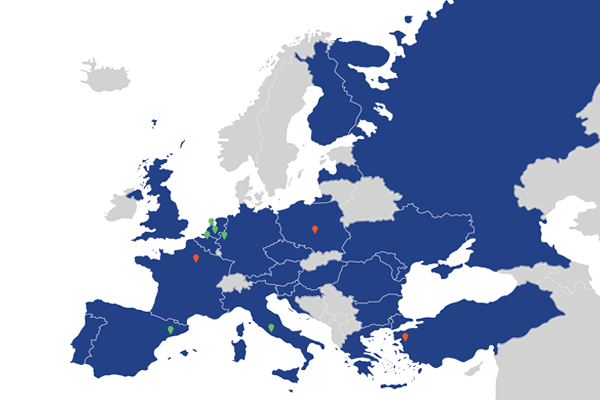The international debtors excuses top 10

16-12-2015
|
7 min.
If your Dutch business partner does not want to pay, it soon becomes evident how creative he can be in coming up with “convincing” excuses. These sophisms are outshone, however, by the creativity displayed by our international debtors in their efforts to evade our clients. This article may convey the impression that our creative brain runs amuck, but we assure you that debtors have actually tried to lead us up the garden path with these excuses. Feeling ashamed on their behalf, we present the international debtors’ excuses top 10.
-
Winter break
“No, I cannot pay. My company is located in a skiing area and is only open in winter. As it is summer now, I have no source of income.” And his beach resort on the Mediterranean coast then? Is that also only open in winter? – France -
Expectant
You may be faced with different rules and procedures abroad, but how to explain a pregnancy that lasts twice as long? “I cannot pay right now, unfortunately, because I am almost due to give birth.” A little later we contacted the debtor again to settle this payment. “That’s not possible, I am heavily pregnant.” “Still? “Yes, no, yes still.” Although this constitutes a unique and remarkable medical situation, we still do not see how this would prevent someone from transferring a payment. – Spain -
Mia famiglia
Italians highly value their family connections. This connection is so strong, that even when it comes to business agreements, you are ranked below the “nonna” and “fratelli” of your business partner. So do not be surprised if you have to wait for your money for a while longer because first, a debt to granny has to be repaid. It may also happen that the much-loved brothers are held responsible for overdue invoices. “I am due to some money from my brother. As soon as I get that money, I will transfer it.” – Italy -
Surprise party
A French debtor’s girlfriend informed us that he had moved to another country. Which country, the girlfriend was not sure of. That someone would not share such information with his friends, we considered being suspicious, to say the least. So we sent a bailiff to investigate. Only the confetti was missing when the bailiff rang the doorbell at the debtor’s original address in Paris and came face to face with the debtor. Surprise! – France -
Thank you very much, please
The Brits are known for their extremely polite and correct behavior, but they definitely have a sarcastic edge. One of our clients had been waiting for some time for payment of its invoices. Its British customer assured our client time and again that it was “top priority” and that “he was doing all he could to effect a transfer of payment as soon as possible.” That this concerned a sarcastic debtor who had absolutely no intention of paying eventually became evident to our client. – England -
On a tout le temps
Terms of payment? No, there is no need to hurry, according to this French debtor. After a sizeable invoice had remained unpaid for six months, one of our clients handed the claim over to us for collection. We immediately contacted the debtor and asked why he had not paid yet. “But six months is not that long, is it? I do not understand why the creditor could not wait a little longer.” – France -
Modern times
We all remember the days when you needed to connect by telephone in order to send an electronic message. In those days, it would have been credible that there would not be an immediate reaction to an email. Nowadays, the internet is omnipresent. That our debtor from Belgium indicated that he could not send an email because he was abroad, is therefore not a very plausible story. It becomes even less plausible when this story is relayed to us by email. – Belgium -
Banks are closed
“I would really like to transfer the money, but the problem is caused by the bank. I will contact them immediately.” The problem with which the banks were faced was serious: due to the crisis, all banks were closed and transactions were frozen. This would have been an absolutely plausible excuse, other than that this only concerned banks in Greece. In the country of this empathetic debtor, such a situation did not exist at that time. – Denmark -
Más tarde
Telephone contact is often the most effective method of obtaining a quick payment. Of course, it can happen that, due to the time difference, our attorneys have to make calls at what are nocturnal hours for us. It gets more complicated when it turns out that the financial department is not open during the afternoon. Especially if, when we subsequently call in the morning, the office hours have been changed again to the afternoon. – Spain -
Falling over oneself to pay
Debtors are generally quite adamant about it. They want to pay but circumstances beyond their control always throw a spanner in the works. For instance, there was an Italian debtor who, good-humouredly, was already on his way to the bank. He was only a few metres removed from the bank and felt the cheque burning in his inside pocket when disaster struck. He tripped. He did his utmost to break his fall, so he could get to the bank as soon as possible. During this fall, he not only broke both his arms but also all his fingers. Of course, we understood that he was deeply disappointed that he would not be able to sign the cheque until several weeks later. – Italy






















